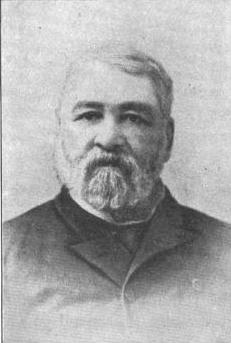Utah Territory in the American Civil War
Utah Territory in the American Civil War
The Utah Territory played a unique role during the American Civil War, which lasted from 1861 to 1865. Although the territory was far from the main theaters of war, it was strategically significant due to its location and the presence of the Mormon population, led by Brigham Young.
Background[edit | edit source]
The Utah Territory was established in 1850, following the Mexican-American War and the subsequent Treaty of Guadalupe Hidalgo. The territory was primarily inhabited by members of the Church of Jesus Christ of Latter-day Saints (LDS Church), commonly known as Mormons, who had migrated to the area under the leadership of Brigham Young.
Civil War Period[edit | edit source]
During the Civil War, the Utah Territory was not directly involved in the conflict between the Union and the Confederacy. However, the territory's strategic location along the Overland Trail and the Pony Express route made it important for communication and transportation.
Union Loyalty[edit | edit source]
The Mormon leadership, under Brigham Young, declared their loyalty to the Union. Despite past conflicts with the federal government, including the Utah War of 1857-1858, the Mormons sought to maintain a neutral stance and avoid further conflict. Brigham Young issued statements supporting the Union and discouraging any actions that would aid the Confederacy.
Military Presence[edit | edit source]
The federal government maintained a military presence in the Utah Territory to protect the mail routes and ensure the loyalty of the territory. Camp Douglas was established near Salt Lake City in 1862, and it served as a base for Union troops. The presence of these troops helped to deter any potential Confederate sympathies and ensured the security of the region.
Impact on the Territory[edit | edit source]
The Civil War had several impacts on the Utah Territory. The increased military presence brought economic benefits to the local population through the demand for supplies and services. Additionally, the war effort led to the construction of telegraph lines, improving communication within the territory and with the rest of the country.
Related Pages[edit | edit source]
- American Civil War
- Union (American Civil War)
- Confederate States of America
- Brigham Young
- Mormon
- Utah War
- Camp Douglas (Utah)
- Overland Trail
- Pony Express
This American Civil War related article is a stub. You can help WikiMD by expanding it.
Search WikiMD
Ad.Tired of being Overweight? Try W8MD's physician weight loss program.
Semaglutide (Ozempic / Wegovy and Tirzepatide (Mounjaro / Zepbound) available.
Advertise on WikiMD
|
WikiMD's Wellness Encyclopedia |
| Let Food Be Thy Medicine Medicine Thy Food - Hippocrates |
Translate this page: - East Asian
中文,
日本,
한국어,
South Asian
हिन्दी,
தமிழ்,
తెలుగు,
Urdu,
ಕನ್ನಡ,
Southeast Asian
Indonesian,
Vietnamese,
Thai,
မြန်မာဘာသာ,
বাংলা
European
español,
Deutsch,
français,
Greek,
português do Brasil,
polski,
română,
русский,
Nederlands,
norsk,
svenska,
suomi,
Italian
Middle Eastern & African
عربى,
Turkish,
Persian,
Hebrew,
Afrikaans,
isiZulu,
Kiswahili,
Other
Bulgarian,
Hungarian,
Czech,
Swedish,
മലയാളം,
मराठी,
ਪੰਜਾਬੀ,
ગુજરાતી,
Portuguese,
Ukrainian
Medical Disclaimer: WikiMD is not a substitute for professional medical advice. The information on WikiMD is provided as an information resource only, may be incorrect, outdated or misleading, and is not to be used or relied on for any diagnostic or treatment purposes. Please consult your health care provider before making any healthcare decisions or for guidance about a specific medical condition. WikiMD expressly disclaims responsibility, and shall have no liability, for any damages, loss, injury, or liability whatsoever suffered as a result of your reliance on the information contained in this site. By visiting this site you agree to the foregoing terms and conditions, which may from time to time be changed or supplemented by WikiMD. If you do not agree to the foregoing terms and conditions, you should not enter or use this site. See full disclaimer.
Credits:Most images are courtesy of Wikimedia commons, and templates, categories Wikipedia, licensed under CC BY SA or similar.
Contributors: Prab R. Tumpati, MD


